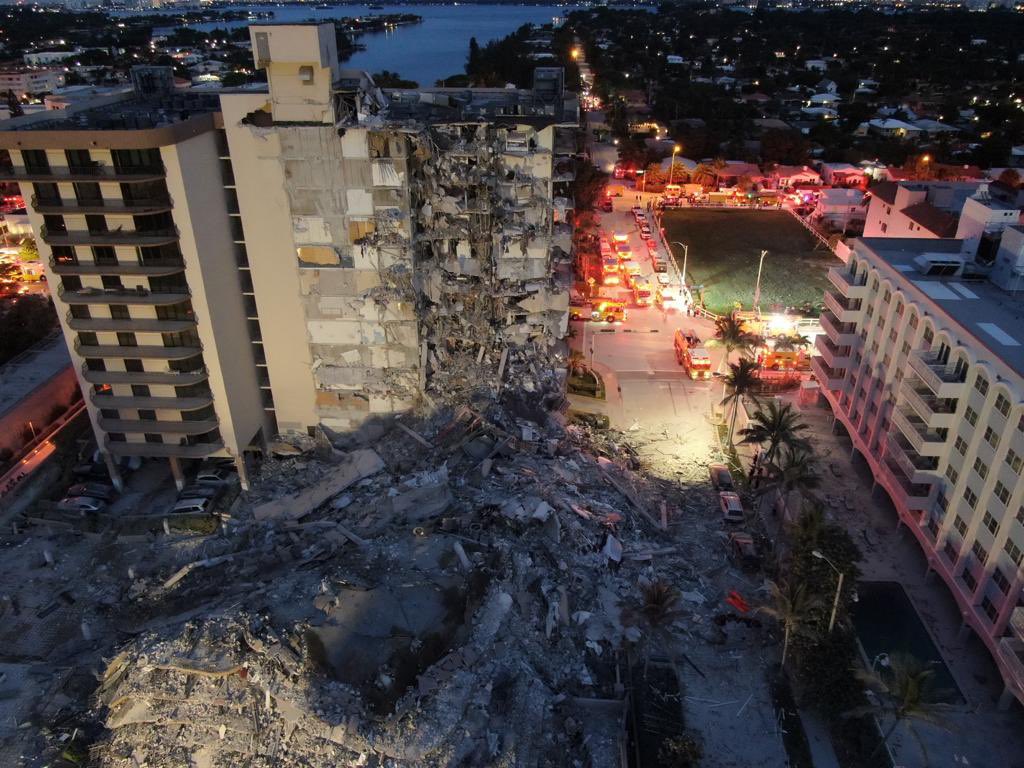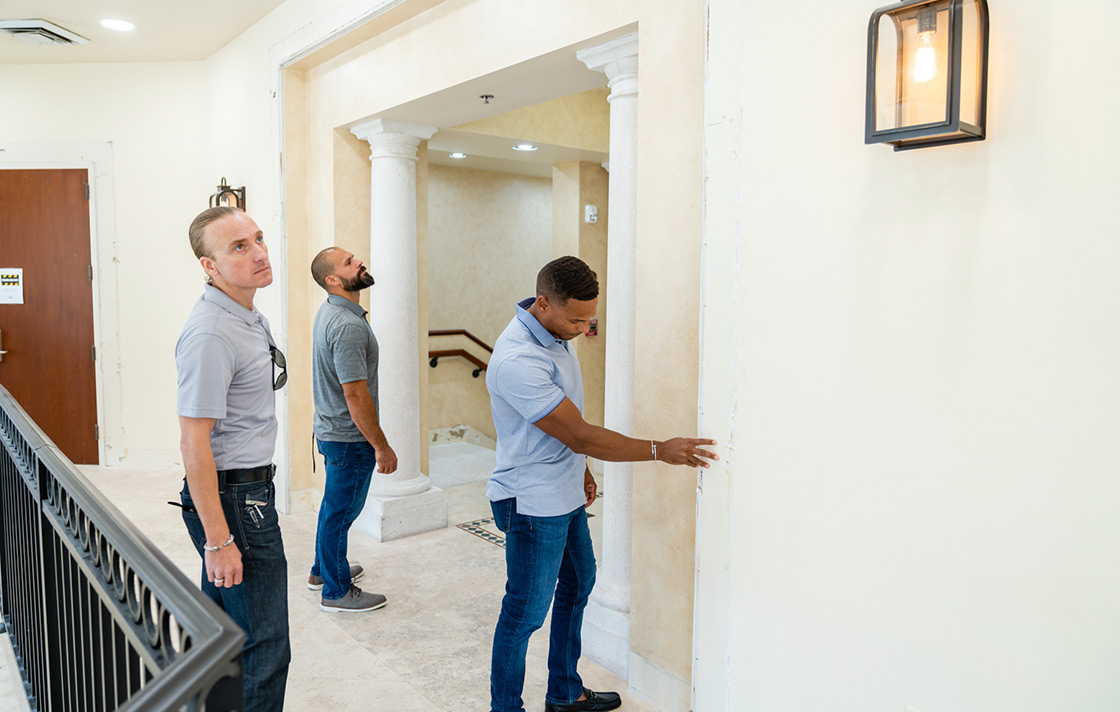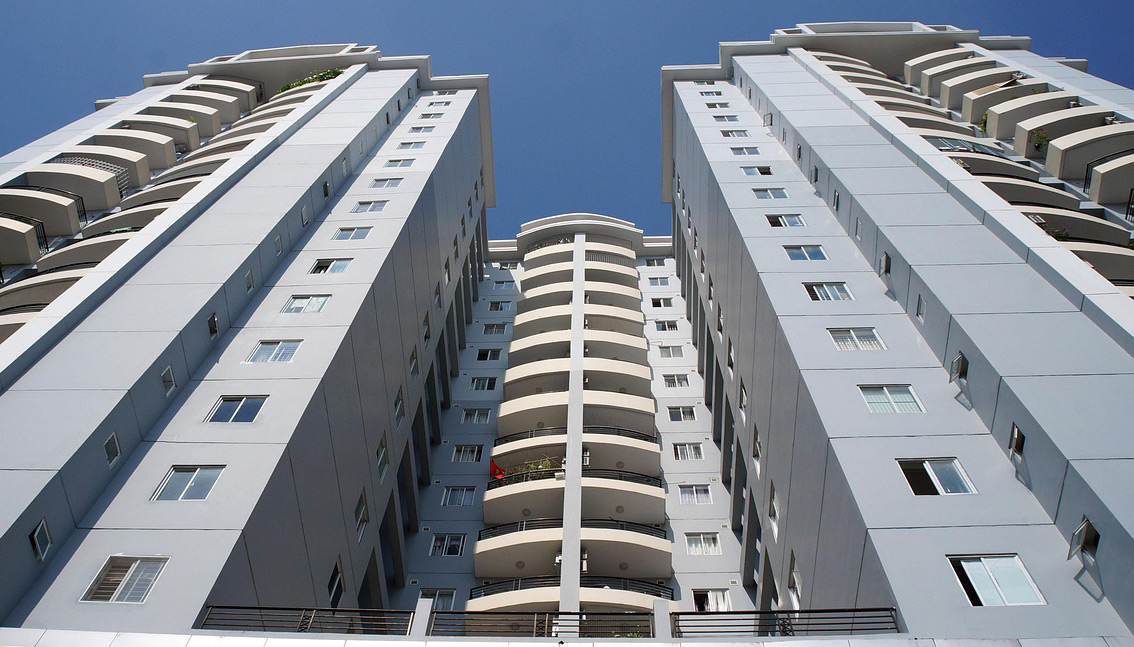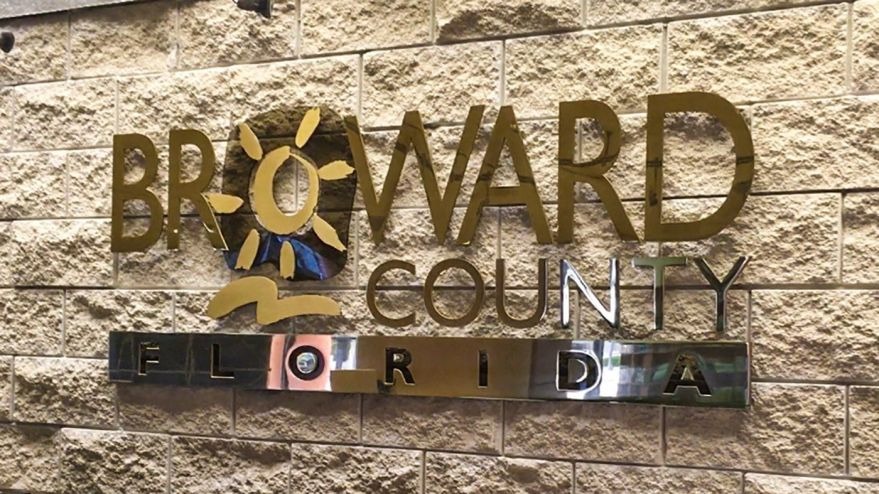
In this article: We break down the key updates to Florida’s Milestone Inspection requirements introduced by CS/CS/HB 913. We’ll explore crucial changes such as the complex new language regarding “habitable stories” for building applicability, the mandate for local enforcement of the repair deadline after a Phase Two inspection, updated local agency reporting duties, and new conflict of interest disclosure rules for inspectors and contractors. Our goal is to help your association understand these critical modifications and prepare effectively.
Florida’s building safety landscape is continuously evolving, and if you own or manage a condominium or cooperative building, staying ahead of these changes is more important than ever. A significant new piece of legislation, CS/CS/HB 913, is set to introduce further updates to Florida’s Milestone Inspection requirements, with many provisions taking effect on July 1, 2025.
Are you ready for what’s next? In this article, we break down the key changes to Milestone Inspections brought by HB 913, helping your association understand what these updates mean for your building and how to prepare. You can read the full summary of the bill directly from the Florida Senate here.
Here at Building Mavens, we’ve been dedicated to providing clarity on Florida’s building safety laws, including our current coverage of the impact of HB 913 on Structural Integrity Reserve Studies (SIRS) and previous coverage on SB 154 and its initial impact on inspections and reserves. This new law builds on that foundation, and we’re here to guide you through it.
Milestone Inspections: A Quick Refresher
Before we discuss the new changes, let’s briefly recap Milestone Inspections. As we detailed in our earlier article on Milestone Inspection legislation, these are structural safety inspections required for aging condominium and cooperative buildings in Florida.
Established by prior legislation like Florida Statute 553.899 (previously known as Senate bill SB 4-D) and refined by SB 154, their primary purpose is to ensure a building’s structural integrity is sound for continued use. These inspections are not about bringing a building up to the very latest building codes for new construction, nor are they focused on cosmetic issues. Instead, they target the core structural components.
The process typically involves two phases:
- Phase One: A visual examination of the building by a licensed architect or engineer to identify any signs of substantial structural deterioration.
- Phase Two: A more intensive inspection, if required, when potential issues are flagged in Phase One. This phase delves deeper into determining the extent of any deterioration and outlines necessary repairs.
Now, let’s look at how CS/CS/HB 913 fine-tunes these existing requirements.
Key Changes to Milestone Inspections Under CS/CS/HB 913 (Effective July 1, 2025)
This new legislation brings several important modifications and clarifications to the Milestone Inspection process. Here’s what your association needs to be aware of:
A Complex Question: The “Story” vs. “Habitable Story” Rule
One of the most talked-about changes in HB 913 is its introduction of the term “habitable story” into building safety law. However, its application is not as straightforward as it may seem and creates a complex legal question.
The legislative history suggests an intent to exempt buildings like a two-story condominium built over an open-air garage from certain requirements. The law adds the “habitable story” qualifier to the part of the statute dealing with Structural Integrity Reserve Studies (SIRS) that must be completed every 10 years.
However, the existing language that defines which buildings need a milestone inspection in the first place remains unchanged in a key section of the law (lines 1835-1836 of HB 913), which applies to “each building on the condominium property that is three stories or higher in height.” This section does not use the word “habitable.” This creates a potential conflict where the initial milestone inspection requirement (three stories) and the ongoing SIRS requirement (three habitable stories) use different standards.
What is a “habitable space”? HB 913 provides that this term will be based on the Florida Building Code, which defines “habitable space” as a “space in a building for living, sleeping, eating or cooking.” The code clarifies that “Bathrooms, toilet rooms, closets, halls, storage or utility spaces and similar areas are not considered habitable spaces.” Furthermore, a published Florida Building Commission Declaratory Statement determined that a garage is not a “habitable space.”
Actionable Advice: The question of whether the legislative intent can override the statute’s plain language is a significant legal issue. Associations should not assume they are exempt based on the “habitable story” language. This is a legal determination, and you must consult with your condominium counsel (rather than an engineer) to get a formal opinion on whether your building is subject to the milestone inspection requirement.
No More Delays: The 365-Day Repair Clock
HB 913 addresses the timeline for addressing issues found during inspections by requiring local governments to act. The bill mandates that boards of county commissioners or municipal governing bodies must adopt an ordinance requiring associations to commence necessary repairs within a timeframe that does not exceed 365 days after the local enforcement agency receives a Phase Two milestone inspection report.
Impact: This is not a major shift in the underlying law itself, which already requires that milestone inspection repairs commence within 365 days of the Phase Two report. Associations that indefinitely defer such repairs are already in violation of the law. The key change in HB 913 is the mandate for local governments to pass ordinances to enforce this existing deadline, ensuring more consistent and proactive compliance across the state. This makes timely financial planning and engagement with contractors critically important.
Keeping an Eye on Compliance: New Reporting Requirements
HB 913 also introduces new reporting duties for local enforcement agencies. By October 1, 2025, these agencies must report specific information regarding Milestone Inspections to the Florida Department of Business and Professional Regulation (DBPR). This data will include the number of buildings inspected and, notably, a list of any buildings that have been deemed unsafe or uninhabitable.
Furthermore, the state’s Office of Program Policy and Government Accountability (OPPAGA) will compile this data and submit a comprehensive report to the Legislature.
What it means for you: While these reporting duties fall on local agencies, the implications for associations are clear. There will be increased state-level oversight and greater transparency regarding building safety and compliance across Florida. The potential for public lists of unsafe buildings underscores the importance of diligently completing inspections and addressing any identified issues.
Transparency in Bidding: New Conflict of Interest Disclosures for Inspectors & Contractors
To promote fairness and transparency, HB 913 establishes new conflict of interest disclosure requirements. Design professionals, such as architects and engineers, and licensed contractors who bid on performing Milestone Inspections and/or Structural Integrity Reserve Studies (SIRS), must now disclose in writing if they also intend to bid on any maintenance, repair, or replacement work that might be recommended as a result of those services.
Additionally, any person who conducts or performs a Milestone Inspection (or SIRS) or provides services recommended in such a study cannot have a direct or indirect financial or ownership interest in the firm that conducted the study, nor be an employee or family member of someone with such an interest, unless it is fully disclosed in writing to the association. Failure to make these required disclosures can make the contract for the inspection or study voidable and could lead to professional disciplinary action.
What it means for you: For associations seeking Milestone Inspection services, this means you should expect and receive greater transparency from potential vendors. This rule helps you identify and assess any potential conflicts of interest, allowing for more informed and unbiased hiring decisions. Ultimately, it aims to ensure that inspection recommendations are made without any ulterior motives.
This conflict of interest rule also has significant implications for how Structural Integrity Reserve Studies are conducted. We explore the full impact on SIRS in our article, “Florida’s New SIRS Law (HB 913): The Key 2025 Deadline Extension & Reserve Rule Changes You Need to Know”.
How These HB 913 Changes Affect Your Condominium or Cooperative
The updates within CS/CS/HB 913 bring tangible changes for associations:
- Re-evaluate Applicability: You’ll need to carefully consider the definition of “habitable stories” for your building(s).
- Urgent Financial Planning: The 365-day rule for commencing repairs means that if Phase Two inspections reveal issues, your association must be prepared to act quickly. This underscores the need for robust reserve funding and exploring other financial avenues if major repairs are needed.
- Quicker Action on Reports: Diligence in reviewing and acting upon Milestone Inspection reports is more critical than ever.
- More Informed Hiring: The new conflict of interest disclosures should empower you to select inspectors and contractors with greater confidence in their impartiality.
Ultimately, staying compliant with these evolving laws is not just about avoiding penalties. It’s about ensuring the safety of residents and protecting the value of your property.
Navigating the New Landscape: How Building Mavens Can Help

Understanding and navigating these legislative changes can feel overwhelming, but you don’t have to do it alone. Building Mavens is South Florida’s premier Milestone Inspections, SIRS, and Engineering Consulting firm. Based in Palm Beach Gardens, our team lives here and is intimately familiar with Florida’s evolving building safety laws and their practical implications.
Our team can help:
- Determine how the “habitable stories” rule applies to your building.
- Conduct thorough Phase One and Phase Two Milestone Inspections.
- Understand your inspection reports and guide you on the next steps.
- Ensure you are meeting all current legislative requirements with clarity and confidence.
Don’t navigate these changes alone. Building Mavens can help ensure your Milestone Inspection process is accurate and compliant and sets your community on a path to long-term safety and security.
Closing Thoughts
The changes introduced by CS/CS/HB 913 represent Florida’s continued commitment to enhancing the safety and structural longevity of its residential buildings. For condominium and cooperative associations, this means a renewed call to be proactive, informed, and diligent.
We hope our overview of its key changes helps our communities understand the new requirements for Milestone Inspections and empowers you to take timely action. The clearer the laws and regulations, the more we can ensure our community remains a safe and secure place to live.
If you need help or have more questions, don’t wait until deadlines are looming. Contact Building Mavens today for expert guidance on Milestone Inspections and to ensure your association is prepared for these important changes.
Frequently Asked Questions (FAQs): HB 913 & Milestone Inspections
Local enforcement agencies must report specific Milestone Inspection data to the Department of Business and Professional Regulation (DBPR) by October 1, 2025, including the number of buildings inspected and a list of any deemed unsafe. While this is a duty for the agencies, it means there will be more state-level oversight and data collection on building safety, which could indirectly influence compliance and enforcement priorities.
Yes. Design professionals (like architects and engineers) and licensed contractors who bid on performing a Milestone Inspection must now disclose in writing if they also intend to bid on any maintenance, repair, or replacement work that might arise from that inspection. Failing to disclose this can make the inspection contract voidable and could lead to professional discipline.
This is not a new deadline, but a new enforcement mechanism. Current law already requires associations to commence repairs within 365 days of a Phase Two report. CS/CS/HB 913 now requires local governments (counties or municipalities) to adopt ordinances that enforce this 365-day deadline, ensuring stricter compliance.
The term’s application is complex. While HB 913 introduces the term “habitable story” (defined by the Florida Building Code as space for living, sleeping, eating, or cooking), it applies it to the ongoing 10-year SIRS requirement. A key part of the statute still defines the initial milestone applicability as buildings of “three stories or higher,” without the “habitable” qualifier. Because of this legal nuance, you must consult with your association’s legal counsel for an opinion on your building’s specific situation.
The law introduces the term “habitable stories” but applies it inconsistently. This creates a complex legal question about whether buildings like a two-story-over-garage structure are subject to the initial milestone inspection. The previous standard was “three or more stories,” and that language remains in a key part of the statute. Associations must seek a legal opinion to clarify their status.
About the Author

Scott’s background is extensive, covering both public and private projects. He’s highly skilled in structural engineering design, construction oversight, and forensic analysis. This includes investigating structural failures, construction defects, and code compliance – all critical to maintaining safety and adhering to building codes. Beyond his investigative work, Scott is also an accomplished design engineer, contributing to various architectural elements from building envelope systems to designs for a wide range of structures. From the initial concept to the final inspection, Scott is dedicated to providing innovative and compliant engineering solutions.
You can contact me directly for more information: info@buildingmavens.com






